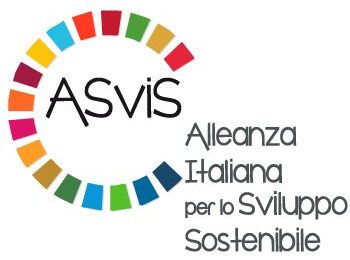
More than 30 years ago the first conflict on the territory of the former Soviet Union, the conflict between Armenia and Azerbaijan has not been resolved yet. Despite four resolutions of the United Nations Organisation, the resolutions number 822, 853, 874 and 884 that implied an unconditional withdrawal of the occupation of Azerbaijani territories, these resolutions were in fact ignored. Unfortunately, lacking enforcement leeway of UNO exacerbated human suffering and lead to an ecological disaster in the internationally recognized territories of Azerbaijan, which have been annexed by Armenia. The protraction of the negotiations by the OESC Minsk Group resulted in the enhancement of the feeling in Armenia that international law is not binding for the case of Armenia. We have a situation, whereby the cooperation mode of Azerbaijan with UN is deemed by the separatists as a weakness. This lead to the open violation of the basic principles that have been elaborated by the Helsinki Final Act and UN Security Council as the prime minister of Armenia, Nikol Pashinyan said publicly that the disputed area, “Karabakh is Armenia”.
On September 27, the Armenian armed forces launched another military aggression against Azerbaijan, intensively firing on Azerbaijani settlements, civilians and military positions from various directions using large-calibre artillery and missiles. The Azerbaijani armed forces had to carry out counter-offensive and retaliatory measures in full compliance with the right to self-defence and international humanitarian law in order to prevent a new military aggression by Armenia and to ensure the security of the civilian population. The attitude of the international community to this war was ambiguous. Many international organizations and states have called on the parties to suspend military operations and start peace talks. At Armenia’s insistence, Russia took the initiative to ensure a humanitarian ceasefire, and a meeting with the foreign ministers of the three countries was held in Moscow on October 11. However, on the very first day of the ceasefire agreement, the Armenian armed forces fired a ballistic missile at night at Ganja, the second-largest city in Azerbaijan, 80 kilometres from the war zone and without any military facilities. As a result of this terrorist act, civilians were killed, dozens of people were injured and hundreds of civilian objects were destroyed. The targeting of densely populated areas hundreds of kilometres away from the conflict zone shows that the incumbent Armenian government pursues an agenda, which is not in line with international law, in particular international humanitarian law and the 1949 Geneva Conventions and their Additional Protocols.
The security risks that emanate from Armenian bombings endanger the critical infrastructure of the Southern Caucasus, such as Mingechevin Water Reservoir and pipelines that transport hydrocarbons from Azerbaijan to international energy markets. Hence, these are the risks that his the Energy security of Europe.
Nevertheless, some states and international organizations are silent, as well as the mass media is not really nonpartisan in its media reports. Azerbaijan loses the battle on the information space due to the strong Armenian lobby in the leading Western countries and Russia.
As a member of the Club of Rectors of European Universities, as an intellectual and scientist, I appeal to all international organizations, especially the co-chairs of the OSCE Minsk Group, which is responsible for the peaceful settlement of the conflict. I am confident that Italy is a member of the Minsk Group, as well as a responsible member of the European Union and can play a very important role in this direction as a country, which has very good relations both with Armenia and Azerbaijan. Senator Stefano Lucidi and chairman of the Inter-Parliamentary Friendship Association with Azerbaijan in the Italian Parliament, a member of the Senate Standing Committee on Foreign Affairs, strongly condemned the ceasefire violation and rocket attacks on Ganja and civilians. He emphasized that ensuring stability in the region is very important both for the security of the population and for the interests of Italy within its foreign policy prerogatives.
I believe that international organizations will demonstrate a constructive position and find the ways in the enforcement of international law in the context of the Nagorno-Karabakh dispute. Speaking about the Nagorno-Karabakh conflict, first of all, it should be noted that the current fighting is taking place in the internationally recognized territories of Azerbaijan. According to four UN Security Council resolutions adopted in 1993, the immediate and unconditional withdrawal of Armenian troops from the occupied territories of Azerbaijan must be demanded. Only this could pave the way for the renewal of good neighbourly relationships between Armenia and Azerbaijan.
Member of the Club of Rectors of European Universities,
Azerbaijan State University of Economics (UNEC)
Professor, Doctor of Economic Sciences, Mirdamed Sadigov








